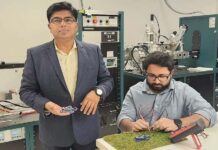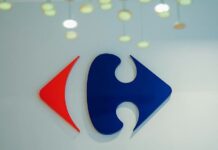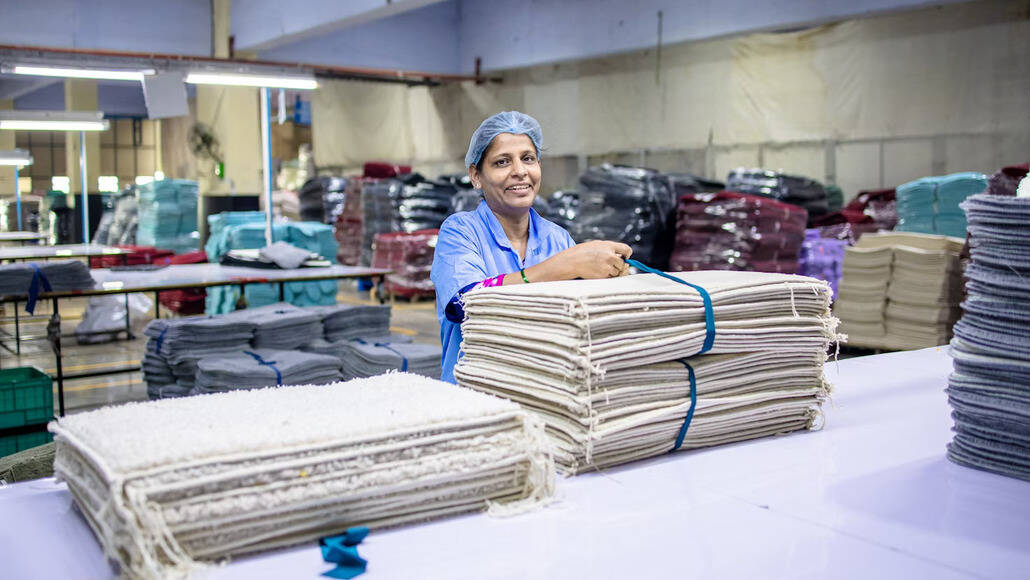The collaboration between Fashion for Good and Arvind focuses on Tier 2 factories, which play a crucial role in the supply chain, aiming to transform them into environmentally sustainable operations while ensuring financial viability.
Fashion for Good outlines that the dual approach of the project involves establishing a comprehensive framework for sustainable production methods and creating a cutting-edge manufacturing facility that aims to achieve up to a 93% reduction in greenhouse gas emissions compared to conventional factory practices.
This initiative represents a significant financial investment aimed at moving from theoretical concepts to effective, proven solutions that are viable from both a commercial and environmental standpoint.
Arvind’s planned facility in Gujarat, India, will specialize in cotton woven and knit production, with expectations to reduce greenhouse gas emissions by as much as 93% in comparison to traditional manufacturing techniques.
The facility is also designed to save around 60 liters of water for every kilogram of fabric produced, marking it as the first near net-zero textile production hub in the industry.
The initiative not only aims to minimize environmental impact but also focuses on ensuring the economic success of a ‘Future Forward Factory’. This includes investigating subsidies, grants, and incentives to facilitate the transition from existing practices to these innovative approaches.
Katrin Ley, managing director of Fashion for Good, stated: “We are at a critical moment in the fashion industry’s journey towards sustainability. With Future Forward Factories, we are taking decisive action to catalyse transformation through both knowledge-sharing and practical implementation.
“By developing a blueprint and working with Arvind to build an actual facility that addresses the challenges of Tier 2 manufacturing – where 52% of the industry’s CO2 emissions and almost all water and chemical usage occurs – we can demonstrate real-world solutions that drive systemic change.”
Strategies to achieve environmental and social objectives include:
-
Transitioning operations to near net-zero by utilizing renewable energy and advanced technologies.
-
Reducing water usage by minimizing fresh water consumption and integrating waterless technologies in processes such as printing.
-
Attaining ZDHC level 3 compliance for chemicals, which could decrease chemical use through innovative methods.
-
Improving wastewater quality with new treatment techniques to lessen the need for extensive wastewater management.
-
Establishing a framework for a Just Transition that prioritizes the well-being of workers during the implementation of green technologies.
Punit Lalbhai, vice chairman of Arvind Limited, remarked: “As a leader in the textile sector, Arvind is committed to pioneering sustainable manufacturing practices. By both developing a blueprint and constructing an innovative facility, we will demonstrate how these technologies can be implemented at scale to address the textile industry’s biggest environmental challenges.”
The initiative has garnered support from key funders such as the Laudes Foundation, Apparel Impact Institute, and IDH, along with partners including Bluwin, Wazir Advisors, Grant Thornton Bharat, and Sattva Consulting.
Future Forward Factories is set to be introduced at the Global Fashion Summit 2025, with plans to publicly share the open-source blueprint in September 2025.
This initiative also encourages other suppliers to collaborate with Fashion for Good in creating additional blueprints tailored for various manufacturing environments, thus boosting the industry’s ability to adopt and scale sustainable practices.

































